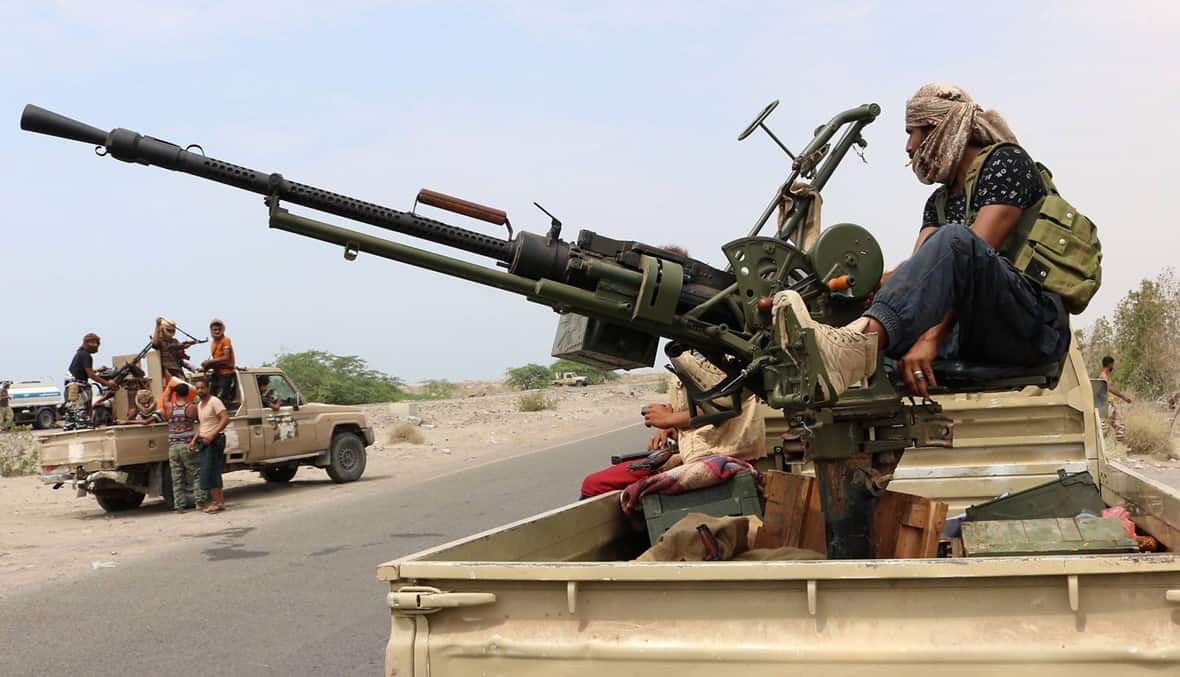
آخر تحديث في: 02-09-2024 الساعة 1 مساءً بتوقيت عدن
London (The Arab weekly)
The chairman of a London-based organisation promoting an independent state in south Yemen has outlined a series of proposals to end the country’s six-year war.
Abdul Galil Shaif, chairman of Friends of South Yemen (FOSY), broke down three potential solutions to the devastating civil conflict during an international zoom conference organised March 6 by the Yemen-based Frontline Human Rights, which monitors the human rights situation in north and south Yemen.
Shaif’s three proposals were:
1. A central government with an economic programme which functions effectively and is provided with sufficient resources to function effectively;
2. A transitional solution with two regions one in the south and one in the north. Both regions would have their own government and parliament. The president could remain to play a functional role in external affairs and defense.
3. Two states: one in the north and one in the south. There is every possibility that a southern state, with a population of five millioncan survive economically. When President Saleh was in power the income that was given to the south was over $2.2billion. There is income from oil, gas, fisheries and taxes which can revive the south economically. No money is required from external sources if proper state functioning institutions are set up.
Shaif emphasised that southerners also need to get their act together. “The Southern Transitional Council (STC) should initiate a national conference for the southerners where reconciliation can take place and the southerners who support President (Abd Rabbo Mansour) Hadi, the head of the internationally recognised government, and those who support the STC can have a joint vision either for a two region solution or a two state solution,” he said. “What we can’t have is southerners having a divided view on the matter.”
Describing the present situation in Yemen, Shaif said there is a government in Sana’a run by the Houthis and the internationally recognised government in Aden. “But in reality, unity during the past 30 years has failed to materialise for the Yemeni people. Since this six-year war, we cannot talk about unity anymore. What we are talking about is the Houthi dominance of the north and the legitimate government in the south that lacks legitimacy in the very true sense. We do not have a state in Yemen, we have chaos. Chaos creates an environment for extremists. My main concern is that we will have extremism in different parts of Yemen – particularly in the south where there are dysfunctional institutions which the government has not been to revive.”
Shaif believes that the economy is a vital issue. “What we need from the international community is an injection into the central bank which will allow the economy to revive itself. That can only be done if we have the proper expertise in the central bank. Yemenis need to work very hard with the international community to ensure there is an international body in the central bank to make sure there is proper oversight of the use of funds.”
“At present, there is no proper scrutiny of the financial system,” he said. “There is a black market financial system which is much more powerful than the government’s financial system. The government has to organise the collection of taxes, customs, oil and gas revenues through the central bank, pay salaries and ensure that proper services are provided.”
For Friends of South Yemen (FOSY), the number one priority is stopping the war. The second priority is accelerating economic development in Yemen. “I think we missed a great opportunity in the past six years in terms of the Gulf states funding for the liberated areas which include most of the south. If those areas were supported economically the people in the south could have prospered and built a system where services were provided for the people,” shaif said.
“Instead we have a vacuum economically in the north and in the south. So what can we do about this? Biden appointing a special envoy for Yemen is an important step and through him we need to take the opportunity to accelerate the peace process. But Biden made a bad decision taking the Houthis off the designated terrorist group list. Two days after they were taken off the list they decided they wanted to take over Marib. The Houthis have been emboldened. We are not sure how far the resistance will continue. If the Houthis do take over Marib, they will become much stronger, and much bolder and will do everything to make the human rights situation worse.”
Shaif said that the Houthis have been able to get “$1.5 billion from taxes, $3.5 million in surplus money from the central bank and $800 million in insurance money from the central bank and are in a much better position financially than the legitimate government.They are also taking weapons that belong to the national army in Sana’a and in surrounding areas.”
Shaif concluded that the situation with the Houthis needs to be resolved quickly and any peace process needs to include the Houthis, but in a way that sees the legitimate government take control of the country.
The conference was also addressed by Widah Aldouh, chair of Frontline Human Rights, who spoke about how the internationally recognised government us responsible for assassinations of Shabwani and Hadrami Security Belt Forces who are fighting al-Qaeda in the south. Journalist and political activist Anwar Al-Tamimi spoke about the deteriorating human rights situation for women in the south after the 1994 war of succession, while Arwa Ahmed, a specialist in ideological groups, spoke about women’s rights violations by the Houthis.